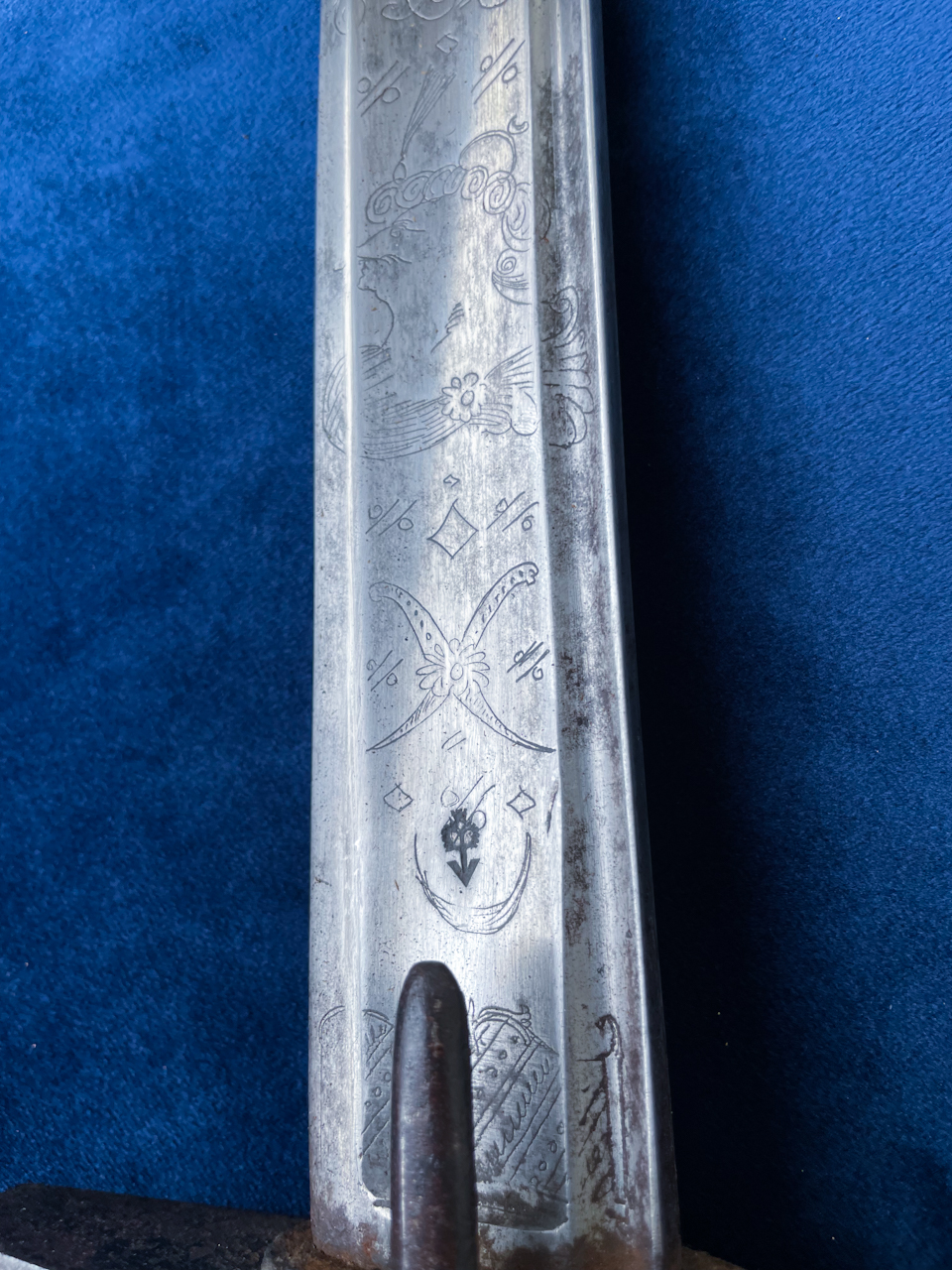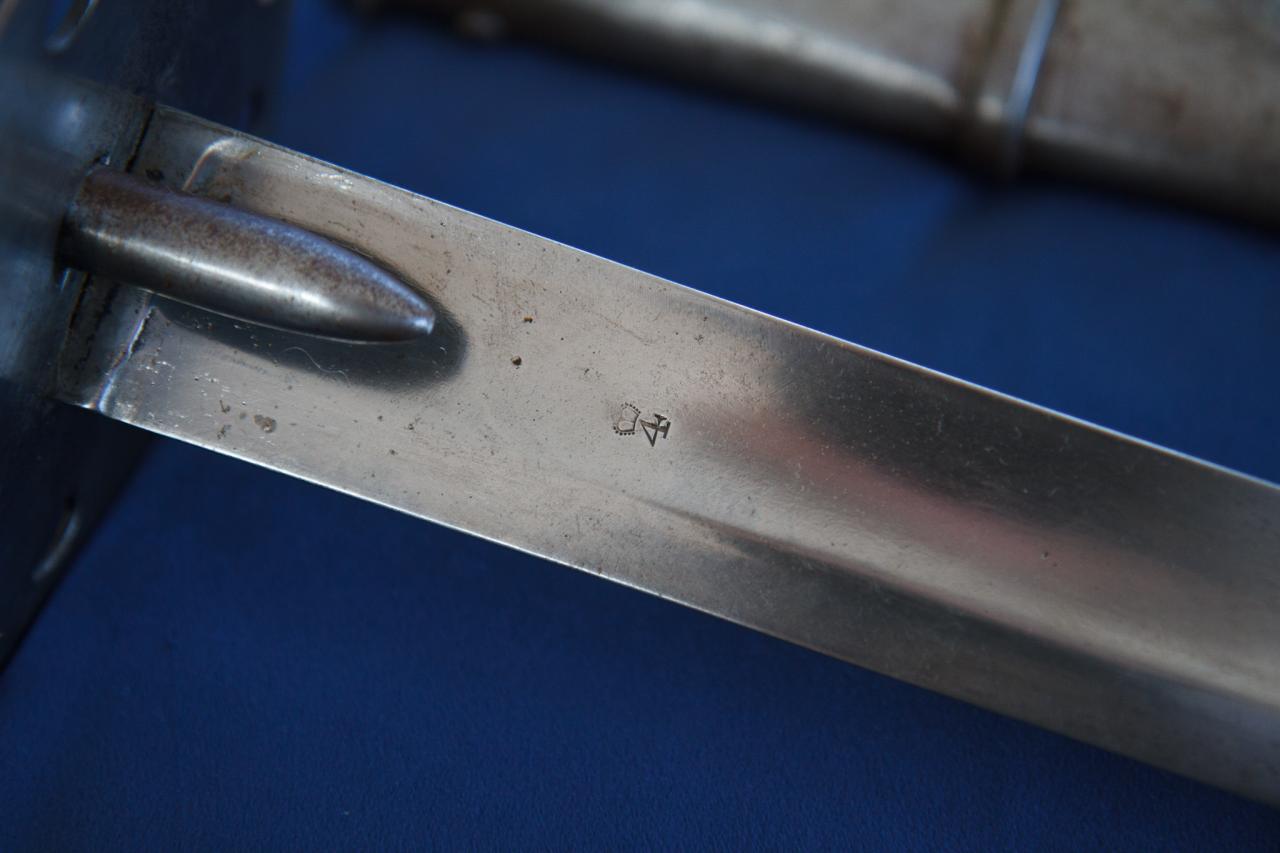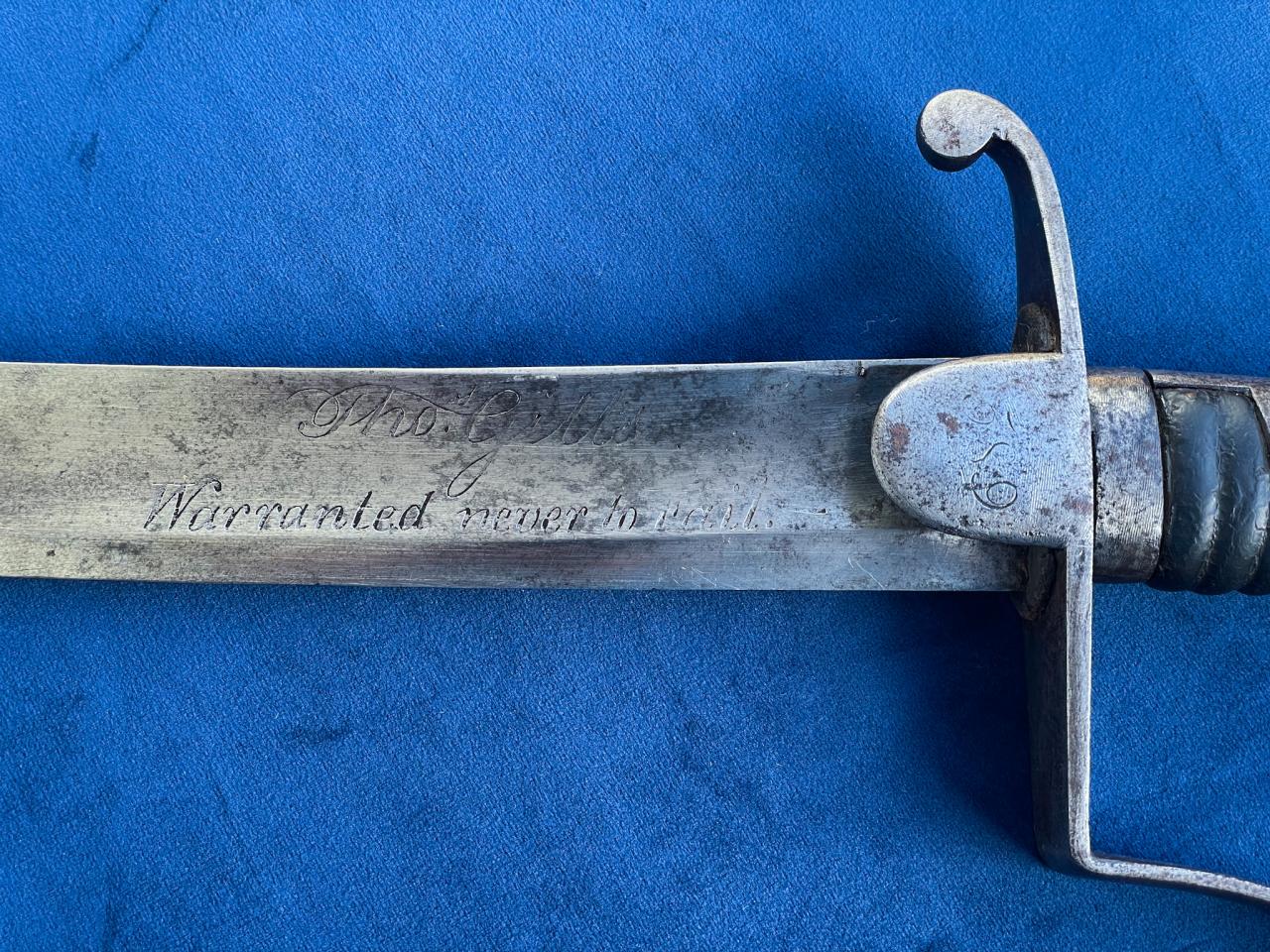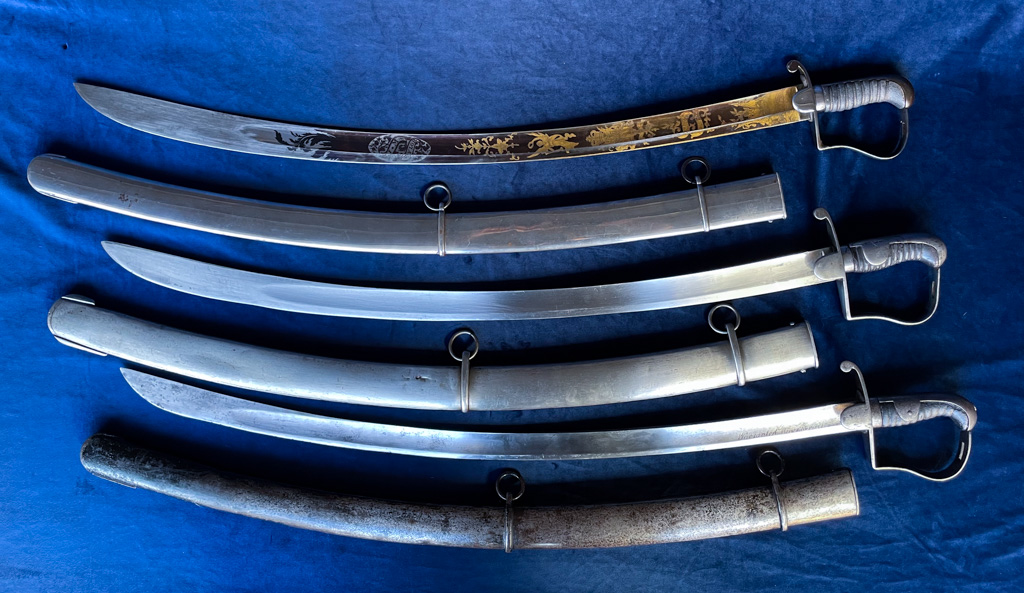Quote:
Originally Posted by Jim McDougall

The switch over to the 'G' on the 1798 sword is curious.....this must have been an officers blade of course as the date is noted.
|
As Bryce notes elsewhere, the G stamp is only fond on officer blades, Osborn and later Osborn and Gunby do not appear to have marked their troopers swords in this manner. Interestingly the Crown over HO appears to have been used on trooper swords as well, the Royal Armouries have several examples of a '1780s light dragoons sword' marked with that stamp.
Quote:
Originally Posted by Jim McDougall

It does not seem this convention of forte letter stamping is much understood, nor for that matter typically discussed in most references.
Obviously the letters would be presumed initials of the maker, i.e. G for Gill? HO for Henry Osborn............but then it seems the G and GG are predominate on Osborn blades.......not so much on Gills?
|
I think we need to accept that this far back in time, at least regarding swords, there were very few conventions to speak of. It wasn't until 1788 that we see the 'universal' sword regulations for troopers with the procurement moving from the regimental captains to the Ordinance board. The first official stamp is the crown over broadarrow sometimes seen on 1788 trooper swords:

This changes with the 1796 patterns (presumably as the process is improved ) when it becomes a crown over an inspectors number:

Again, no universal practice appears to have been applied with trooper swords being found without the inspector stamps and officer swords with them. The theory being that inspection was done before the blades were hilted.
Quote:
Originally Posted by Jim McDougall

There are letters noted in Robson, such as E= Enfield as well as S=Solingen.
While Dawes was producing troopers M1796 swords.......it seems that blued and decorated blades for officers were being imported from Solingen and perhaps that might account for the S ?
|
I believe this practice started later than the period we are discussing (Thomas Gill Snr and John Gill), around the 1850s? Certainly Victorian era trooper swords have much clearer markings on them than the Georgian era swords. I don't think we should look at Victorian markings and apply those same ideas back to earlier times since we are looking at a progression of procurement practices as the army continues to evolve and 'modernaize'.
Quote:
Originally Posted by Jim McDougall

I guess we are getting away from the original topic here, which was centered on establishing proper markings on swords by Thomas Gill.
|
All the Thomas Gill Snr marked swords I have seen are clearly marked with his name and branding. Even on a smallsword where there isn't much space on the blade, he manages to get his message across

But I haven't seen any use of letter stamps. Only Henry Osborn and on a limited series of swords Sammual Dawes appear to have used the practice. And then predominantely on swords intended for commercial sale rather than government sales.
Tho Gill's Warranted never to Fail (1796 Pattern light cavalry sword):

Notice that there isn't an ordinance board stamp, so it could be private purchase for a Yeomanry troop or similar.
Three generations of Gill:
Elizabeth Gill (widdow of John Gill) - 1796 LC Officer named to Oldham Yeomanry Cavalry (OTYC).
John Gill - 1796 LC troopers sold to Dutch service.
Thomas Gill - 1796 LC troopers.
